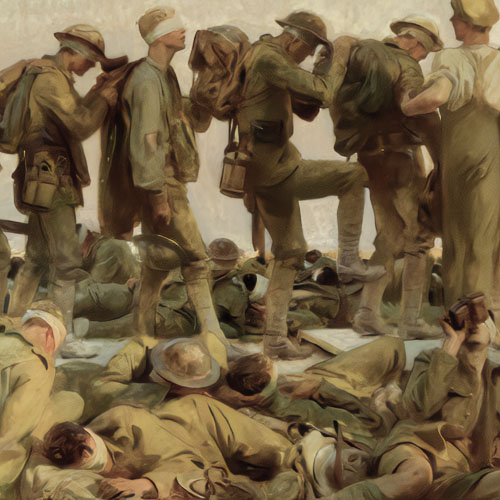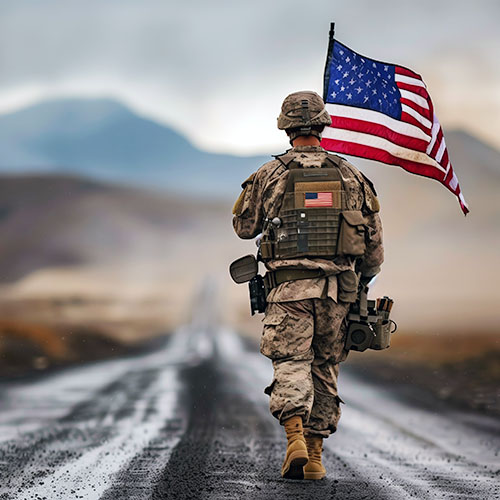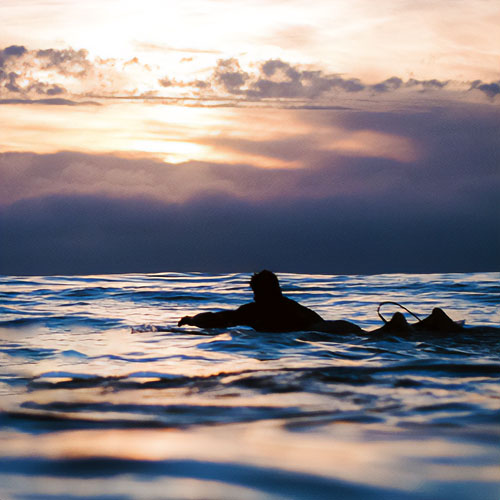Eleven years after Matt Gallagher’s scout platoon returned home from Iraq, a lot of things have changed — except for when they get together. Our national security columnist checks in with the men with whom he went to war.
We Were Soldiers Once, and Young
We’d just lived through 15 months that would stay with us the rest of our lives, but for the moment, we just wanted to party.
I don’t remember much about the redeployment journey from our outposts north of Baghdad back to America — there were Humvee rides, helicopter flights and various tents that served as temporary lodging. We boarded a commercial flight in Kuwait, but that still meant three or four long legs.
I do recall landing back on the tropical green isle of Oahu, though, where we were stationed as part of the 25th Infantry Division. I do recall what the sight of Diamond Head and Waikiki Beach and the crystalline, teal cove of Pearl Harbor did to my soul. After all those months in a desert of all sorts of brown and yellow, getting shot at and trying to figure out who was the enemy — and wondering if every piece of loose trash on the street maybe hid a bloody, sudden end — Hawaii gripped my senses in a way no physical place ever has.
We’d lived. We’d made it. And back then in those early months of 2009, we were allowed to think we’d turned around the war, too.
Thirty cavalry troopers and infantrymen — and one proud medic! — made up the 2nd Platoon, Bravo Troop, 2-14 Cavalry. It was the honor and duty of my life to be their platoon leader. One of us was hurt seriously, but he’s living a full life now. In a vague, hazy way, as young men on the cusp of our new lives and new selves, I’m sure we understood back then we’d always be connected by what we’d just gone through and done together. In the moment, though, like I said, we just wanted to kiss our wives and girlfriends, hug our kids if we had any, and then hit the town.
The story goes that arrests in Honolulu went up 300% that weekend.
Eleven years later, life’s taken us disparate places, but for good and ill, we’re still united by the war. That war. Our war. Some of us are still in the Army. Some of us recently retired and are adjusting to post-service life. Some of us (raises hand) got out years ago and are comfortable in our veteran skin, but sometimes have a hard time identifying with the lean, trim machines we once were.
The heart and soul of the platoon — aka “the Gravediggers,” an ironic nickname taken from the World War II comedy Kelly’s Heroes — was the platoon sergeant, Chris. A tall, thick former offensive lineman from Iowa, we called him Big Country, and he commanded respect from his soldiers and superiors alike. Quite likely the most capable man and human being I’ve ever known, Chris deployed three times over the course of 20 years and retired from the Army two years ago. He’s transitioned to a second career in logistics in the private sector, and we both had way too much fun (and a few beers) after his retirement, going through his trunk of maps, equipment and photos from our time together overseas.
Two section sergeants, E-6s in Army parlance, oversaw the day-to-day lives of the Gravediggers. Torri led like a bulldog, all firm aggression and by example, while Mason relied on his swagger and rock-star charisma. Both went on to run their own platoons; Torri retired a few years back and now works in tax preparation. Mason’s still in, teaching ROTC cadets at a university in the Northeast all his hard-earned wisdom. Tomorrow’s leaders are in capable hands.
Last spring, I traveled to rural Oklahoma for a dear friend’s wedding — Smitty, one of the young infantry privates in the platoon, who often was the first through the door on a raid. In the years since, he’s done grown up and was ready to get hitched. There was a solid turnout from the old crew — five of us in total, and three of us were groomsmen. It was a wonderful ceremony with many a devout Baptist, so after the reception, the Gravediggers snuck off to a local watering hole. We caught up like only old war buddies can, telling stories that grew increasingly less family friendly as the night wore on. We called the other guys who couldn’t make it, made promises to keep in better touch, and all the rest. It was reinvigorating. For a couple hours, at least, we were together again, soldiers again, able to pretend to be young and free and fierce like we’d once been, too.
Of course it hasn’t been smooth and easy for everyone. One of my former soldiers suffered a traumatic brain injury in Afghanistan on a subsequent deployment. Life’s tough for him, especially when his VA disability check arrives late. Another lost a child and has wrestled mightily with post-traumatic stress. Yet another went through a messy divorce he’s only beginning to emerge from. And out of the 30 in the platoon, there are two no one seems to know what happened to — no phone number, no Facebook, no nothing. That tends to happen in groups of this size, but still, I’ll find myself on aimless afternoons wondering if somewhere along the way, I could’ve reached out when that was still an option.
We miss each other. We miss needing each other. Twisted as it is, we miss that life, when every day, every patrol, every fucking moment mattered. There was a purpose of being in every step of the boot, and while that’s no way to live forever, it juices the veins with both clarity and adrenaline when you’re in the midst of it.
As we walked out of that bar and into a dark Oklahoma night last spring, we felt — all too fleetingly — like we did that night back in 2009 when we’d landed in Hawaii. The war was in the past, neat and contained in the memory box we’d tucked away. The present and future were one, intertwined with possibility and the togetherness of the group. The group, the platoon. The we.
It never lasts. It can’t. Maybe that’s why it’s so special to return to it when we’re able.
Matt Gallagher is a U.S. Army veteran and the author of three books, including the novel Empire City. For more of Matt’s work, you can check out an entire section of Embrace the Suck. That name has always had a special ring to in for many of us here. One would be hard pressed to describe 2020 in any better terms, actually — save for the fact that we contintue to have problems leaving that behind. Key word must be Embrace.























